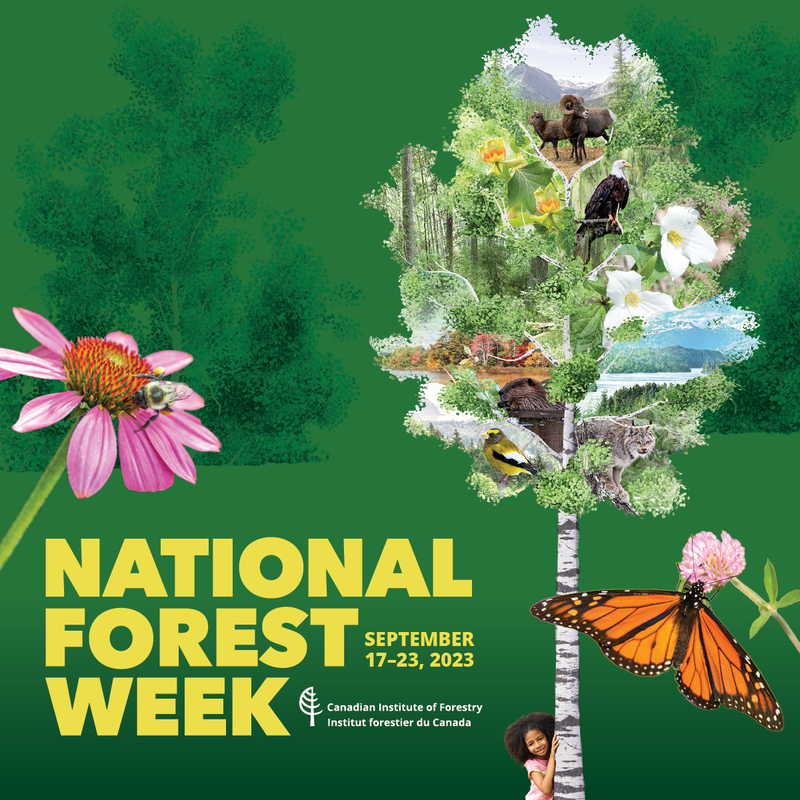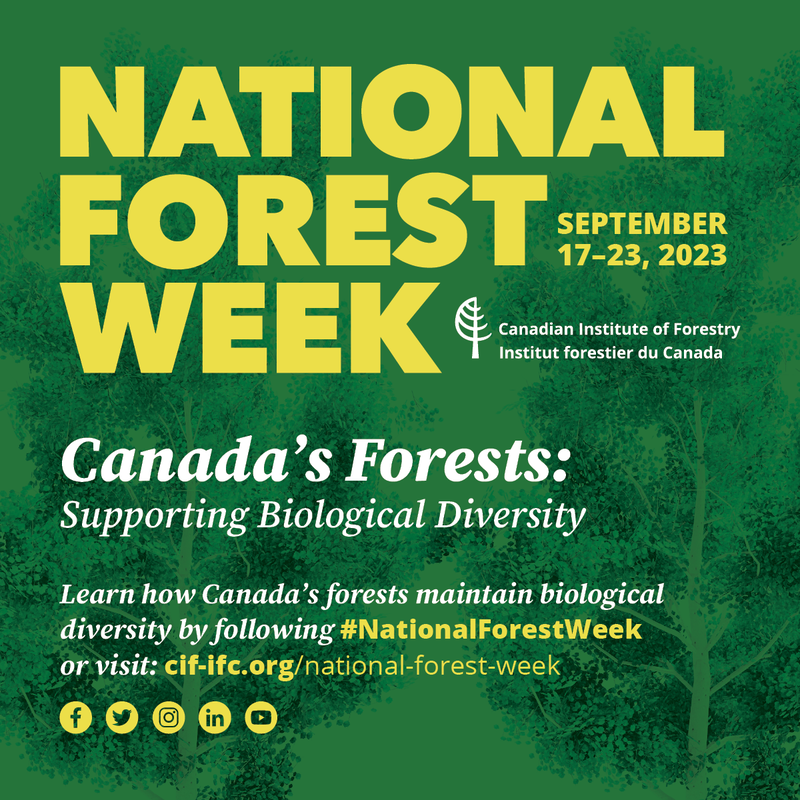|
By: Matthew Perry, Forest Communications Advocate, Canadian Institute of Forestry/Institut du Canada (CIF-IFC) From September 17-23, 2023, Canadians from coast to coast to coast are invited to celebrate National Forest Week (NFW). Through this one-week campaign led by the CIF-IFC, individuals from all ways of life can learn more about the forest sector and its significance to Canada’s culture, history, and future, while also supporting a greater recognition of forests as a valuable, renewable and green resource. This year’s theme “Canada’s Forests: Supporting Biological Diversity”, highlights how biological diversity in our forests is critical to our survival. From fresh air and water, food security, medicines, shelter to innovative products and technologies, forests and trees provide many cultural, societal, environmental, and economical benefits. Biodiversity is defined as: “the variability of life (plants, animals, bacteria, etc.) found in the world’s ecosystems. Biodiversity includes genetic differences within species and variations in the ecosystems they inhabit” (NRCan, 2023). Having the third-largest forest area in the world, Canada’s forests are made up of 32 native conifer, 125 native hardwood, and at least 55 exotic tree species (NRCan, 2023; StatCan, 2018). These forests serve an important part in supporting biodiversity and are home to a wide variety of wildlife, plants, fungi, mosses, and lichens. Within Canada’s forests, there are a number of characteristics that impact the ability of species to flourish and grow, including age, composition, and structure. Additionally, forest disturbances (i.e., wildfire, drought, and disease) can also influence forest characteristics, which can also be affected by climate change. Through sustainable forest management practices, forest practitioners, professionals, researchers, and scientists are playing a key role in protecting biodiversity amidst a changing climate, helping ensure our forests remain strong for generations to come. How our forests support and maintain biological diversity are highlighted in our NFW 2023 daily sub-themes:
There are many ways you can participate in NFW including: engaging in CIF-IFC’s free NFW-themed contests and activities, learning about forests and trees through the Institute’s educational resources, organizing or participating in a tree plant or NFW event, exploring a forest near your home, or learning more about forests and sustainable forest management. Visit the CIF-IFC website to learn more about our 2023 NFW sponsors or how you can celebrate Canada’s forests this September. Stay connected by using the #NationalForestWeek hashtag and share your NFW stories, events, and photos with us at: [email protected] or tag us/follow us on Facebook, Twitter, Instagram and/or LinkedIn. Formed in 1908, the CIF-IFC is the national voice of forest practitioners and many others with an interest in forestry and forests. The Institute strives to provide national leadership, promote competence, and foster public awareness of Canadian and international forestry/forest issues. References:
1 Comment
leslie
10/7/2023 06:28:12 am
I am disappointed that your organization (CIF Cdn Instit of Forestry) is making no effort to create a nation-wide response to the forest destruction of summer 2023. Surely we need a single national cmte with sub-cmte for separate issues where those with the know-how will share and dispute best practices.
Reply
Leave a Reply. |
AuthorWrite something about yourself. No need to be fancy, just an overview. Archives
July 2024
Categories |




 RSS Feed
RSS Feed
